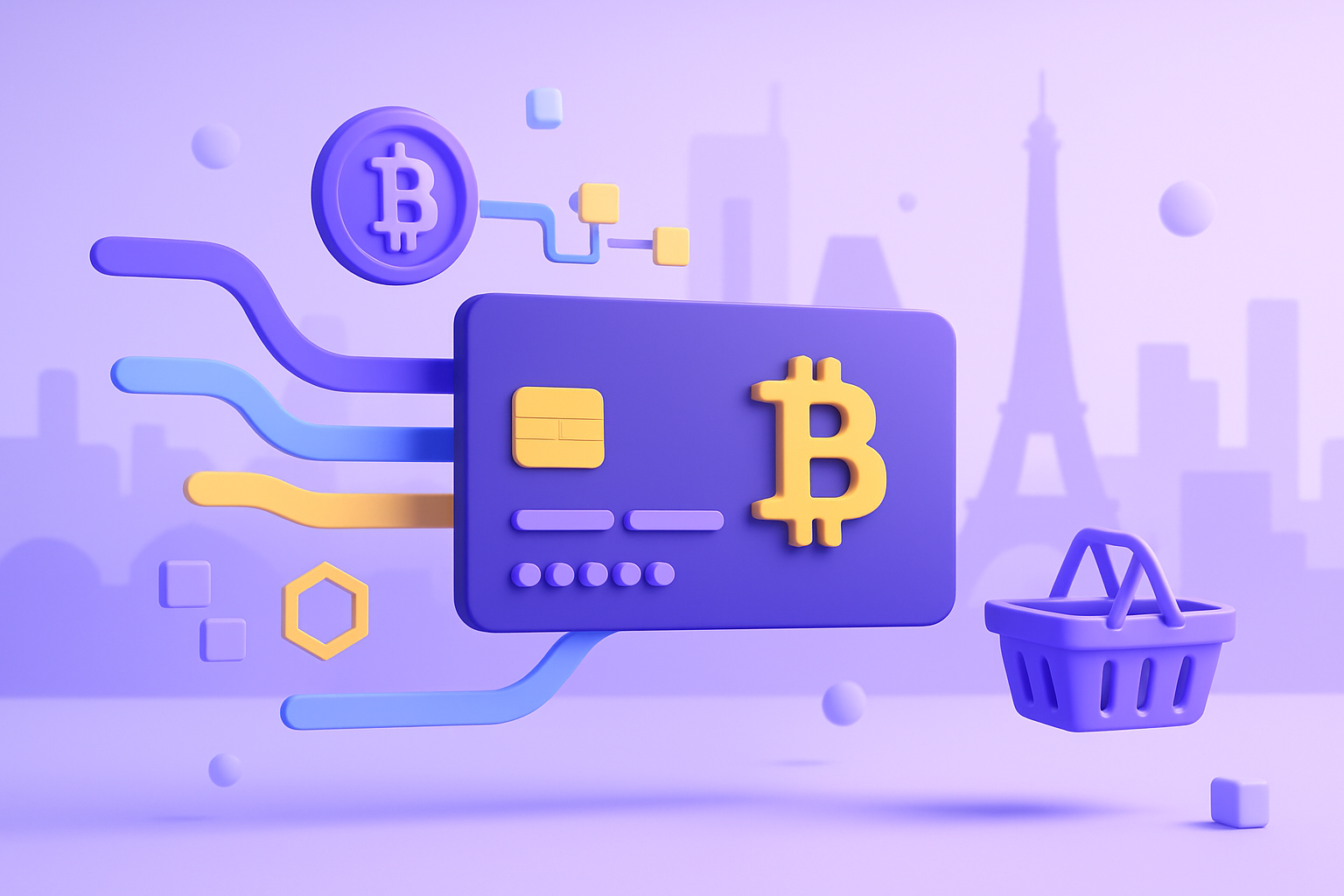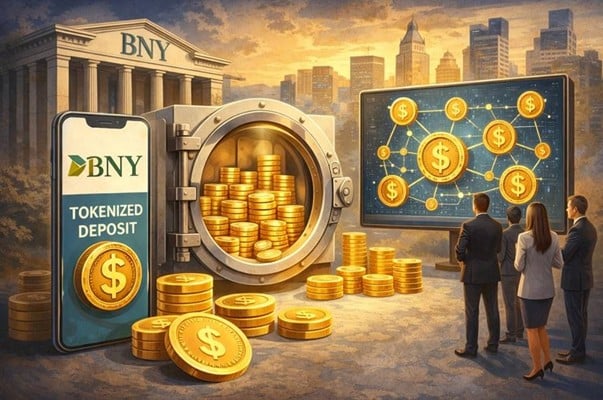Key points to remember:
- Living without a bank account in France remains difficult, but possible under certain conditions.
- Payments are possible via crypto cards, with businesses accepting BTC and P2P exchanges.
- Salary and administrative matters: The law almost always requires a bank account.
- Funds are managed via wallets (hot or cold), with full responsibility for security.
- Taxation: 30% tax on capital gains, strict regulatory framework.
- This lifestyle is particularly suited to independent and tech-savvy individuals who value privacy.
What if you could live in France without a bank account, using only Bitcoin?
This cryptocurrency, created in 2009, promises total freedom: no intermediaries, no banks, just a global network open to all. The idea may seem futuristic – even a little utopian – but it appeals to those who want to regain control of their money and free themselves from the traditional banking system.
One question remains: is it really possible, in 2025, to pay for groceries, receive a salary, save, or borrow… without ever going through a bank? This article examines the available tools, the legal and tax constraints, and the risks to be aware of before taking the plunge.
Why consider a life without a bank account?
For some, giving up banks is above all a choice of freedom. Financial freedom, total autonomy, ideological conviction… The motivations vary, but they converge around the same idea: to be the sole master of one’s money.
In France, living without a bank account remains complicated. Yet, several thousand people do so by choice or exclusion. Alternatives exist: prepaid cards, neobanks, but they often remain linked to the traditional banking system.
Bitcoin, on the other hand, is a game-changer: it allows you to manage your funds yourself, using your own keys, with direct and permanent access to your money.
Paying with Bitcoin: mission possible?
Paying for purchases in Bitcoin is no longer reserved for enthusiasts: it’s already a reality in some places.
In Paris, for example, Sof’s is the first bar to accept this payment method. More broadly, crypto cards offered by platforms like Crypto.com or Binance allow you to instantly convert your BTC into euros at the time of payment. Connected to the Visa or Mastercard networks, they can be used in most businesses.
But these cards have their limitations: they require identity verification (KYC), sometimes charge conversion fees, and can be affected by regulatory changes.
Other solutions exist:
- Bitcoin ATMs (BTMs), rare in France, allow you to convert cash and crypto.
- Personal exchanges (P2P) via platforms like Paxful or LocalBitcoins, or during physical meetings. More informal but effective.
- Pay with a gift card with Bitrefill for everyday purchases like grocery shopping, travel and furniture.
👉Check out the dedicated article where we explore how Bitrefill makes it easier to integrate cryptocurrency into everyday life, from buying gift cards to booking hotels and topping up your mobile phone. A convenient solution that expands your options for spending your bitcoins without converting to euros.
Receiving an income without a bank
This is where things get complicated. In France, the law requires that any salary above 1,500€ be paid into a bank account. Below this threshold, cash payments are legal, but impractical on a daily basis.
Social assistance (RSA, APL, etc.) also requires a bank account. A few workarounds exist – direct payment to the landlord or via an association – but no public body currently pays its benefits in Bitcoin.
Managing your savings and borrowing
Storing Bitcoin requires a digital wallet, of two types:
- Hot wallets: connected to the internet, practical but more vulnerable to hacking.
- Cold wallets: offline, ultra-secure but requiring great rigour, as the loss of the private key means the permanent loss of the funds.
To borrow, some French FinTech companies offer loans secured by a BTC deposit (Lombard credit). These offers remain regulated and subject to strict regulatory obligations.
Constraints and risks
In France, Bitcoin is considered a digital asset, not an official currency. Capital gains are taxed at 30%.
Platforms must be registered, comply with KYC, and enforce anti-money laundering regulations.
Added to this are other constraints:
- High price volatility.
- Traceability of transactions on the blockchain, despite the pseudonym.
- Security is entirely the responsibility of the user.
In summary, living exclusively on Bitcoin in France is possible… but under strict conditions and with a good dose of organisation. This lifestyle is particularly suitable for independent individuals, techies, or committed activists. For the majority, the banking system remains essential for receiving a salary, paying bills, or receiving social assistance.
However, the landscape is changing rapidly. The rise of crypto-friendly fintechs, the adaptation of regulations, and the rise of decentralised finance could well make this choice much simpler – and perhaps even commonplace – in the future.
In reality, the question may not be whether we can live on Bitcoin, but how far we are willing to adapt our lifestyle to do so. Between personal conviction, practical constraints, and risk management, the balance is unique to each individual. What is today perceived as a marginal challenge could, in a few years, become a mainstream choice for those wishing to diversify their way of managing money.
What if living on Bitcoin wasn’t just about freedom… but also responsibility? Because behind financial independence lies constant vigilance, where a simple mistake can be costly.
On the same topic: discover the incredible story of James Howells, the man who lost 8,000 bitcoins… in a landfill, and who tried to find them.










